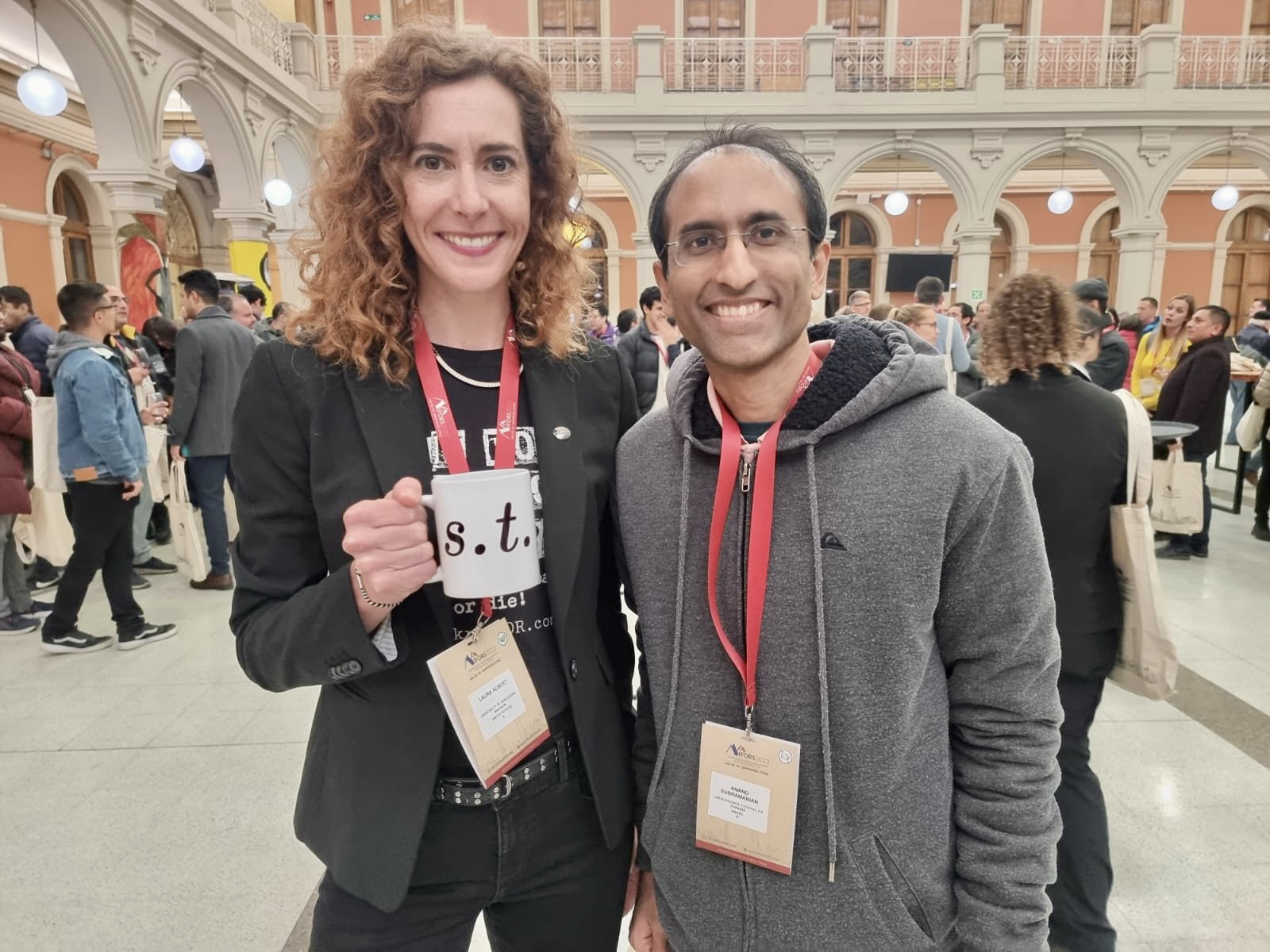The 23rd Conference of the International Federation of Operational Research Societies (IFORS) was held in Santiago, Chile on July 10-14, 2023. I attended and enjoyed the conference talks and conversations. I appreciate the efforts of the organizing and program committees, especially co-chairs Jorge Vera and Rafael Epstein as well as program chair Alice Smith. Here are a few highlights of the conference.
In the opening plenary entitled “From Academia to Politics: A Vision for Addressing Urban Transport Sustainability Based on Lessons from Santiago’s Transport System,” Juan Carlos Muñoz addressed the modernization of Santiago’s public transportation system. The challenges were technical and political, and they included route optimization, seamless fare collection, and sustainability. Muñoz noted that Santiago has more electric buses in their fleet in any city outside of China. He outlined several stories and challenges at the intersection of transportation logistics and politics, including an interesting story summarized how the public transportation system supports the citizens’ ability to vote. There are many performance goals, and the one I like above all was summarized by Juan Carlos Muñoz as “Earning the heart of Santiago’s citizens.”
Margaret Brandeau gave the second plenary talk entitled “Advancing Analytics for Better Health and a Better World.” She told several stories about her research for social good, including how to allocate limited COVID-19 vaccines, policies for homelessness, policies for the opioid epidemic (prevention, treatment, diversion, etc.), and the effect of climate change on crop nutrition. Professor Brandeau made it clear that she has enjoyed influencing policy in recent years, and she argued for greater usage of artificial intelligence (AI) in healthcare. One of her research stories motivated early analyses for influencing policy by developing simple but insightful mathematical models using small amounts of available data without waiting for having having a large amount of data. When the talk concluded, I had a greater appreciation for the simple yet informative models we can create and analyze. You do not need big data to make a difference.
Paulo Toth gave the third plenary talk entitled “Metaheuristic Algorithms for Location-Routing Problems.” Andreas Weintraub gave the final plenary talk entitled “How OR has Impacted Decisions in Natural Resources.” Rene de Koster, Tava Olsen, Andrea Lodi, and Dolores Romero Morales, Brian Denton, and Anna Nagurney gave the keynote talks.
There were several special tracks, including a session by Leonardo Bassi about the 2022 Franz Edelman Award awarded to the Chilean Ministries of Heath and Sciences: Analytics Saved Lives during the Covid-19 Crisis in Chile.
I organized a panel discussion about AI entitled “Opportunities at the Artificial Intelligence / Operations Research Interface” with panelists Michael Fu, David Shmoys, Lavanya Marla, and Ahmed Abbasi. In the panel, we discussed aspects of AI amenable to OR methods, fairness, risks of AI, the impact of generative AI, and how OR curricula should be adapted to train the next generation in AI. I plan to follow up on this. Stay tuned.






Leave a comment